VWeekend: Victoria’s 21 most talked about or valuable people in 2021
It’s been a year most would like to forget but 2021 has also given rise to heroes and agenda-setting leaders. Here’s our pick of the most prominent and valuable Victorians of the year. Do you agree?
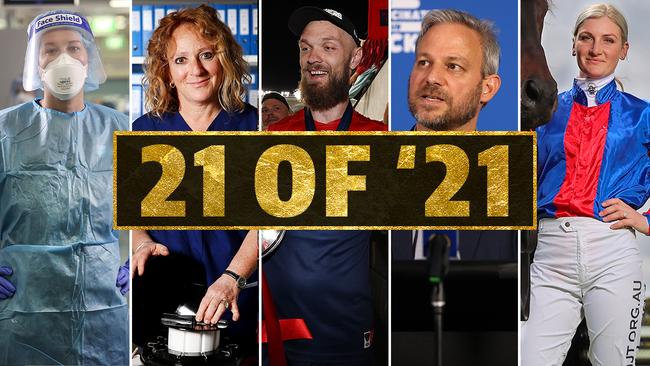
Victoria
Don't miss out on the headlines from Victoria. Followed categories will be added to My News.
They are the Victorians who touched our lives, set the agenda for our state or had us talking in 2021.
Some inspired us, others shocked us and many had a significant influence on our lives.
From Olympic gold medallists to pandemic responders, from politicians to key scientists and world-beating sportspeople.
From a long list of significant achievements and controversies, today we name 21 Victorians – not ranked in order of importance or value - who were front and centre in 2021.
Do you agree with our list?
Who would you include?
Leave your suggestions in the comments below.
1. Frontline health workers
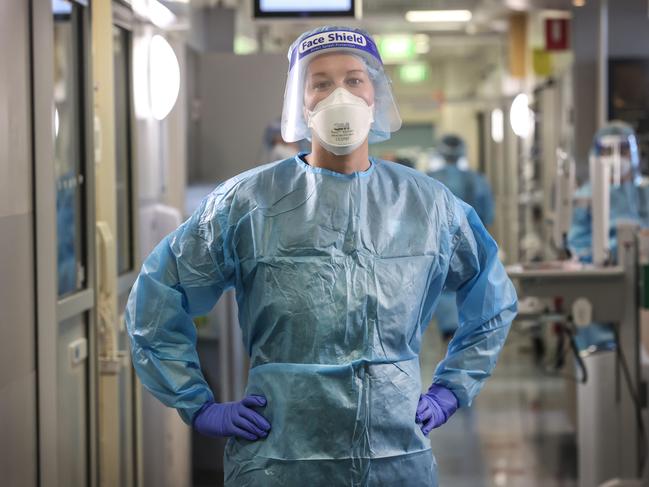
Much has been written and spoken about the efforts of health workers during the Covid pandemic – and all of it is appropriate.
Indeed, it is difficult to find the right superlatives to describe their amazing efforts. They have truly been the heroes of our coronavirus response.
Working long hours, isolated from family and friends, due to their exposure risks, and comforting those in hospital – with or without the virus – who themselves were unable to be comforted and visited by family due to strict isolation requirements.
Often they were the only contact for the dying and severely ill, holding their hands as they suffered and connecting lonely and anxious patients with their equally distressed loved ones via handheld devices.
And when numbers of Covid patients in hospitals fell, there they were again delivering vaccinations to the public to help set us on the road to freedom.
While the tributes and respect to frontline health workers has been universal, and they have been honoured at every opportunity – aged care nurse Lisa Travis and paediatric nurse Angela Maxwell presented the Melbourne Cup this year to winning connections – the toll has also been heavy.
Many report being overworked and retaining doctors, nurses and trained professionals in our hospital system into the future will be a key challenge for government and administrators.
While Victorians will soon be freed of almost all restrictions as we hit the 90 per cent double dosed vaccination target, spare a thought for our medical staff who will be wearing masks well into the foreseeable future.
2. Dylan Alcott
Star Athlete and Victorian of the Year
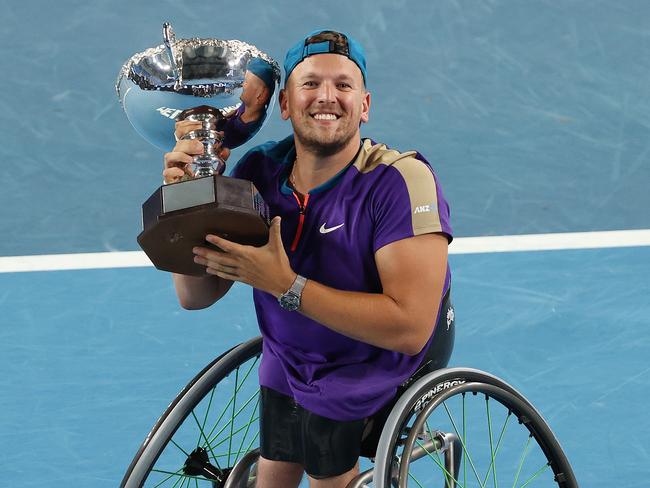
Victorian of the year and winner of the “Golden Slam” in 2021 – all four major tennis titles plus the Paralympic gold medal – Alcott shocked the country this month announcing he will retire and January’s Australian Open will be his last tennis tournament.
He’s won 15 grand slam titles and four Paralympic gold medals in his career and is indisputably the greatest quad tennis player of all time.
While Australia mainly knows Alcott as a tennis champion, he started his career in wheelchair basketball, winning a gold at the Beijing Paralympics and silver in London before he moved to tennis in 2014.
Yet despite his sporting plaudits, Alcott’s greatest achievements may well be the cut-through he has achieved as a mainstream media talent and the visibility he has given disabled athletes generally.
“I’m super proud and probably more proud of the work we’ve done off the court to be honest,” Alcott said. “Being a good tennis player is probably the 32nd priority of my life and I mean that. Being a good person is No.1, a good family member, a good friend, a good partner to my partner, Chantelle, and being a good advocate for my community to change perceptions for people like me so they can live the lives they deserve to live and get the opportunities that I’ve had. I’m so lucky.”
Alcott now has a consulting company, a food company, a foundation, wants to get into acting and has written a script. And he has even entertained a tilt at politics.
The Dylan Alcott Foundation provides scholarships and grants to marginalised Australians with disabilities, while his Ability Fest is Australia’s first fully accessible music festival.
3. Dan Andrews
Premier
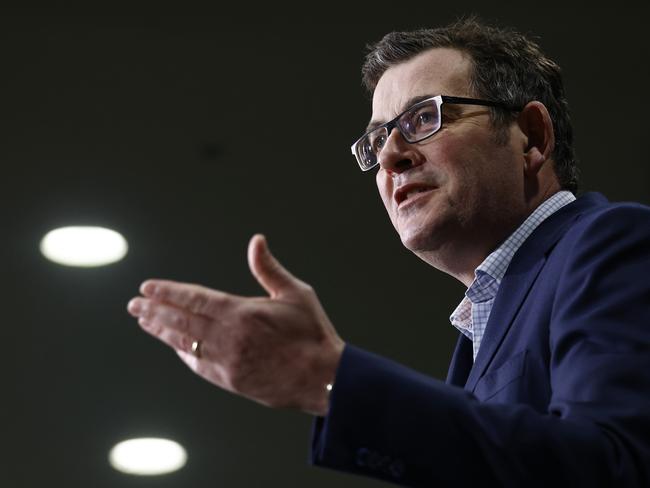
The year started off with great hope. After the horror 2020 caused by the Covid-19 pandemic, a vaccine was on the way and the state enjoyed a more normal summer. A four-day lockdown in February reminded us all that the virus wasn’t yet gone – and then it all went downhill.
Along with the rising threat of the Delta strain of Covid-19, in March the Premier suffered a fall at a property on the Mornington Peninsula, causing injuries so severe he could not perform duties until late June, handing the reins over to deputy James Merlino, who oversaw a short “circuit breaker” lockdown of two weeks from May into June.
Many marvelled at his ability to go out day after day once he returned after a crippling back injury in June.
With the Premier back in office, lockdown five (two weeks) was enforced in July before lockdown six brought the state to its knees from August 5 until October 26, in the process breaking the world record for a city to be lockdown during the pandemic.
Release from lockdown did not temper community anger, however, with Victoria’s draft Public Health and Wellbeing Amendment (Pandemic Management) Bill 2021, whereby the Premier can declare a pandemic crisis, continuing to draw protesters to the steps of state parliament.
The Independent Broad-based Anti-corruption Commission (IBAC) probe into Labor’s branch stacking and renewed concerns about the Red Shirts scandal involving taxpayer-funded staff working in marginal seats during the 2014 state election are also stalking the Premier. Surely 2021 would be a year the Premier would rather forget, but will never be allowed to.
Supporters point to the job he’s done under trying circumstances, even with the criticism he’s copped.
But the Premier has lost some of his gloss in the eyes of the voting public, and questions over culpability for last year’s Hotel Quarantine and aged care fiascos remains, along with questions about why he is blocking the release of health advice that led to lockdowns.
4. Brett Sutton
Chief health officer
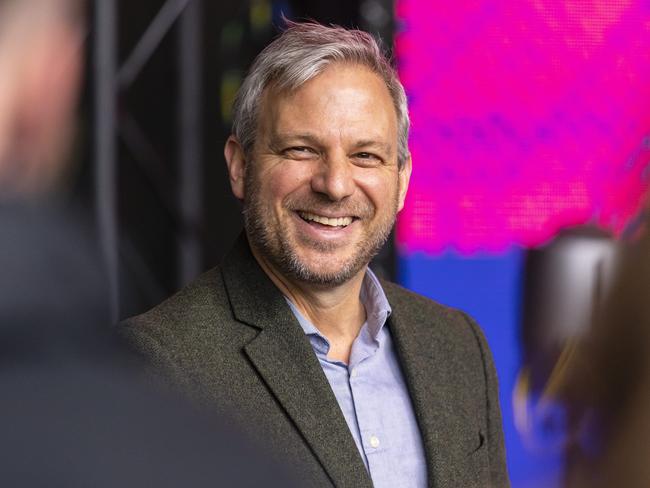
Arguably the most powerful person in the state with his pandemic powers.
For 20 months now Victoria’s chief health officer has been a calm, steady presence in the response to Covid-19.
Despite standing at daily press conferences beside the Premier Daniel Andrews, Deputy Premier James Merlino and Health Minister Martin Foley, the public has largely accepted his bipartisan, scientific-based approach to the crisis, and he has appeared immune from political posturing.
However, when he disappeared from the daily Covid briefings for a stretch it prompted speculation on whether he was on the same page as the Victorian government.
For a man who fills a job most in the state did not know existed pre-pandemic, Sutton has risen to great heights and acclaim and has even become the focus of new ranges of merchandise produced for his fans.
5. Max Gawn
Melbourne premiership captain
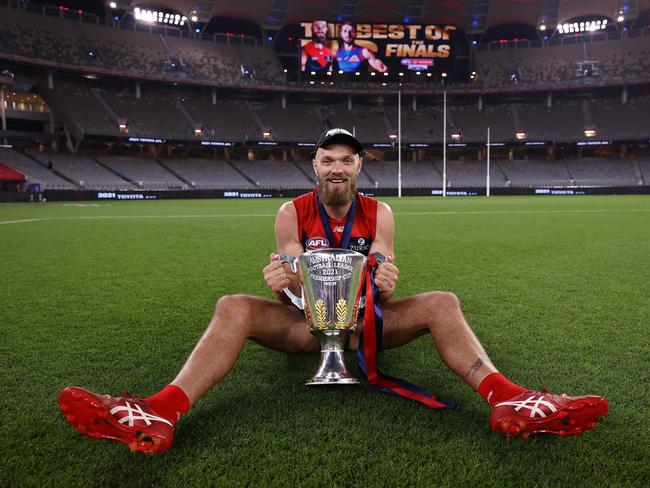
The Melbourne captain took his club to the AFL pinnacle – a cherished premiership – and in doing so helped the club break a 57-year flag drought. The Demons juggernaut attracted much neutral support on Grand Final Day, and much of it was due to the loveable, laconic Gawn.
The big man talks straight, with a wink of the eye, and his teammates follow him into action knowing he will stand up when it counts.
For years the premier ruckman in the game, he is now the archetypal leader. A player who can inspire with both deeds and words, who is loved by his teammates but who can deliver the tough love when it’s needed.
“I like to think when I go to sleep at night or when I finish my career at some point, I’ll be able to say I didn’t change,” he said after the grand final.
“I probably have in some ways, but I like to stay true to the person I walked in as, as an 18-year-old.”
6. Jamie Kah
First jockey to ride 100 metro winners in a season
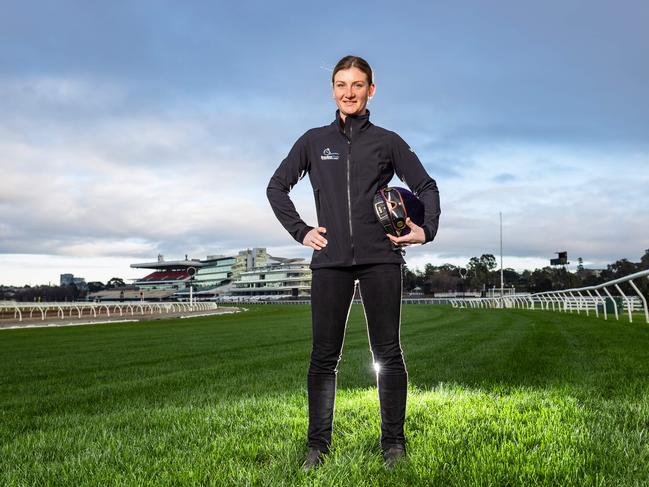
Not the best “female jockey”, just the best jockey in the land.
Kah went where no rider has gone before her, winning 100 Victorian metropolitan races to etch her name in history.
On July 11, Kah broke Brett Prebble’s high water metropolitan mark of 99½ winners which he’d set in 1999-2000 and went on to finish with a breathtaking 105 winners.
Anticipation had built within racing circles and more broadly with the general public.
Like the great horses of the modern era, such as Winx and Black Caviar, people came to the track purely to watch Kah claim her place in history.
But the jockey remained humble and focused throughout.
“I’m not the one for crowds and people cheering my name, it’s very foreign to me still,” Kah said after her 100th win.
Raised in Mount Pleasant – with a population of about 260 – on the edge of the Barossa Valley in South Australia, Kah had a hard road to the top.
But she told journalist Hamish Mclachlan after her amazing achievement: “I’ve definitely had a lot more recognition than I thought I’d get, and importantly, for me, for the first time in my career, I actually felt proud of myself.
“For once, it’s not just a female record – this is a record no jockey has ever achieved. That’s pretty special.”
A Covid breach at a jockey’s house party in August stained Kah’s stellar year and ruled her out of the spring carnival, costing her potentially hundreds of thousands of dollars, but she still was named the Scoby Breasley medallist for Victoria’s top jockey by a record margin.
7. Josh Frydenberg
Federal Treasurer
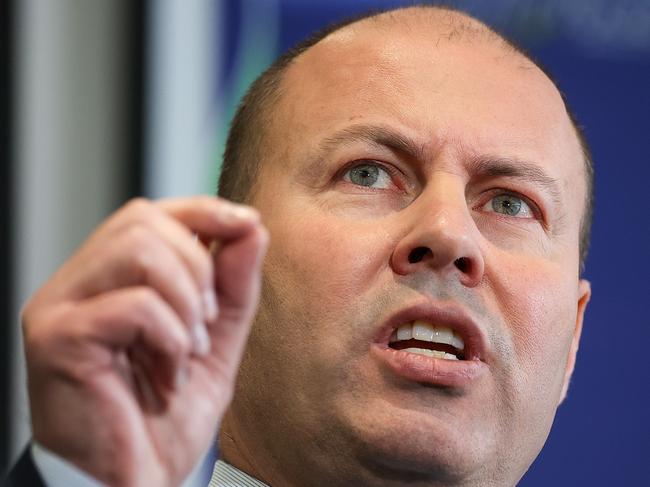
At the start of 2021 Victoria’s most senior Liberal was focused on steering Australia out of its pandemic-induced economic hole, with cash for support programs, such as Job Seeker and Job Keeper, running out.
In May’s federal budget Frydenberg delivered jobs, tax cuts and 70,000 new apprenticeships at the heart of an $87bn cash splash to boost Australia’s economy after Covid.
The Treasurer was banking on the spending spree to create 250,000 jobs in two years, drive unemployment below five per cent and fast-track the nation’s great escape from its biggest financial shock since the Great Depression.
But as the Covid Delta strain drove a new stake into the heart of Australia’s economy, in July the Treasurer announced the coronavirus crisis had blown the biggest hole in Australia’s budget since World War II, revealing an eye-watering deficit of almost $190bn.
With recovery from the crisis the only focus of the Treasurer, Frydenberg turned the torch on states that were wavering, or in some cases turning their back, on the national cabinet-agreed road map out of the pandemic. In particular Victoria’s state government, and our premier Dan Andrews, bore the wrath of the federal member for Kooyong.
“Melbourne has gone from the world’s most liveable city to the world’s most locked-down city,” Frydenberg said in October.
“It’s an unenviable title, and a window into the hardship and sacrifice Victorians have experienced since March last year.
“We must open up our economy safely, in accordance with the national plan agreed at national cabinet.
“NSW is the first out of the blocks, bringing forward its opening, having passed the 70 per cent double vaccination rate … in stark contrast, Victoria is running behind.”
8. Shane Patton
Victoria Police Chief Commissioner
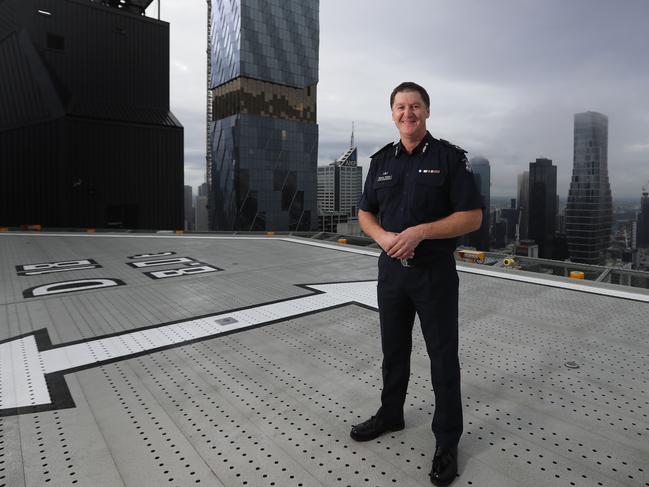
Victoria Police’s Chief Commissioner and his force were too often cast as the bad guys, or maybe the fall guys, as the anger of the Victorian community grew this year over continued lockdowns and harsh restrictions.
Ordered to enforce draconian restrictions; even members of the force kicked back on enforcing the closure of playgrounds.
But the most public image of police officers during 2021, unfortunately, will be the frontline crackdown on protests, which this year grew ugly and violent.
Heavily armed and armoured police were forced to meet angry construction workers along with fringe groups upset over vaccine mandates, lockdown duration and enforced restrictions.
And in September he shut down Melbourne’s public transport network to head off more mass protests.
Even aside from the Covid crisis, the Chief Commissioner couldn’t be shielded from controversy and politics.
As controversy raged over plans for a CBD supervised drug injecting room, Mr Patton said “you’d have to be living under a rock” not to be concerned about the impact of the first, North Richmond injecting room on local amenity.
He also had to face backlash over what he described as one of the worst leaks in Victoria Police’s history -—the release of images of Dani Laidley taken while in custody in 2020. In April Patton announced six officers would each need to pay up to $3000 each to Ms Laidley, and be placed on a 12-month behaviour bond, for harm caused by their actions.
Mr Patton has also been forced to look back at historical claims about police interference in Labor’s Red Shirts scandal and whether senior police officers influenced the iCook Foods investigation. It’s been a busy, high-profile year.
9. Jeff Browne
Aspiring Collingwood president
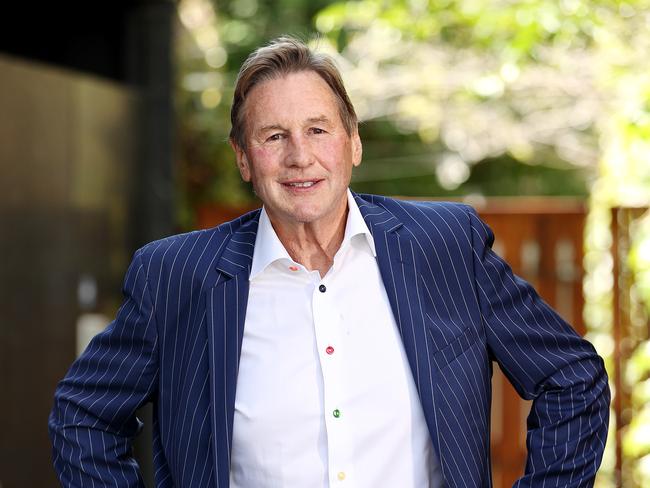
Melbourne’s drought-breaking premiership aside, it was probably the AFL’s biggest story of the year that had all football followers intrigued — the Collingwood board shake-up.
Long-time club president Eddie McGuire resigned in February in the wake of the release of the “Do Better” report into allegations of systemic racism at Collingwood, triggering a drawn-out fight for control of the club.
Mark Korda took over as president but soon after former Nine Network managing director Jeff Browne — reported to be a close friend of McGuire — was making moves to claim the job as head of the famous club’s board of directors.
The ugly spat played out for much of the year until Korda revealed last month he would stand down, paving the way for the Collingwood’s third president in months at elections at the club’s annual general meeting in December.
Browne appears to have a deal in place to take over as president.
“No amount of brave performances by our football team can mask the problems at board level,” Browne said in August, as the Collingwood battle heated up.
It’s been a tumultuous year for the club, also losing coach Nathan Buckley when he quit in June.
10. Chris Lucas
Restaurateur
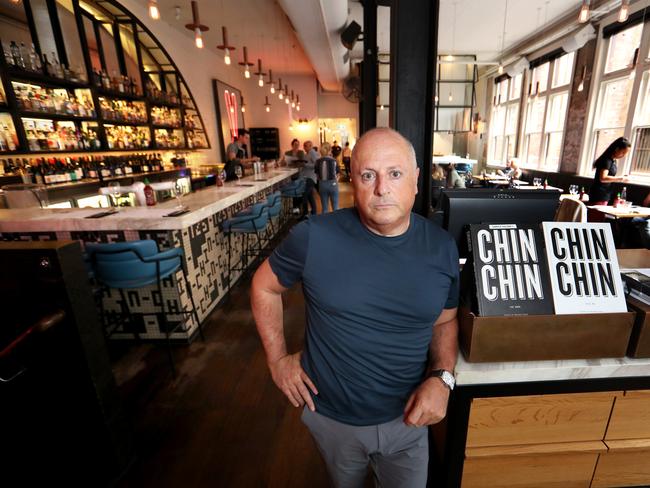
It’s unlikely there’s been a more passionate and determined advocate for the local hospitality industry during the pandemic than restaurateur Chris Lucas.
He has let his actions do the talking, backing in three new restaurants this year.
Just before lockdown six the Chin Chin founder opened Society – home to three new spaces inside the luxe 80 Collins precinct – with Martin Benn and Vicki Wild (now departed from the business), behind Sydney’s acclaimed Sepia restaurant.
Yakimono, a casual Japanese eatery also at 80 Collins, followed this month and he has announced he will also open all-day eatery Grill Americano.
Lucas admitted earlier this year he was losing hundreds of thousands of dollars a week when lockdowns closed restaurants, but in order to save the jobs of some of his 1000 employees was offering free meals to hospitality workers affected by the lockdown.
In January, Lucas fired off at authorities with the looming end to JobKeeper payments.
“There’s an economic armageddon coming on March 31 and under the current scenario where they can shut borders, have this state of emergency which zaps confidence and change rules at the drop of the hat if there’s one case, it erodes the ability for us to run our businesses,” he said.
“The only reason there hasn’t been mass job losses in hospitality is because of JobKeeper.”
11. Shane Delia
Chef and restaurateur
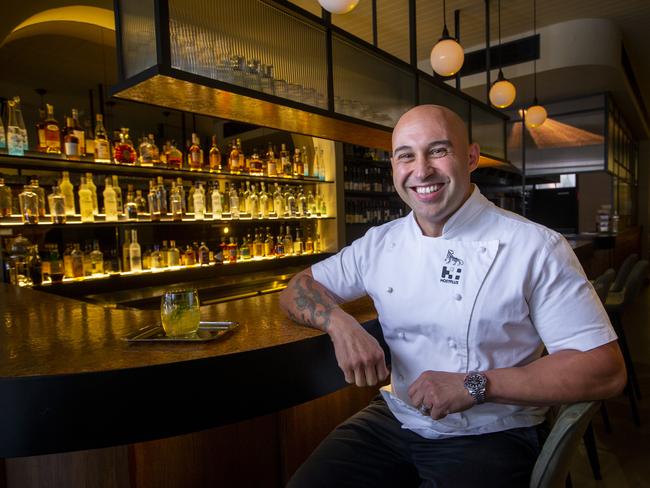
One of the buzz words of the Covid pandemic has been “pivot” – the ability of businesses or individuals to switch their focus to capitalise on what they can do, rather than lament what they can’t.
Amid the terrible stories of businesses going bust, one of lockdown’s true successes has been Providoor.
The DIY meal-kits, which let everyday people cook food from Melbourne’s top restaurants at home, were created by Maha chef and restaurateur Shane Delia weeks after the city’s first stay at home orders came into effect.
Since it began, the brand has welcomed even more top-tier restaurants and recently expanded into Sydney. More than 35 of Melbourne’s favourite restaurants, including Lagoon Dining, Supernormal, Rumi, Maha, Matilda and Di Stasio are now on board.
In between Providoor and lockdowns, Delia also reopened Maha Bar in Collingwood serving smart Middle Eastern snacks and drinks.
“Providoor is not a lockdown phenomenon. We’ve got big growth plans,” Delia said earlier this year.
12. Catherine Bennett
Deakin University chair in epidemiology
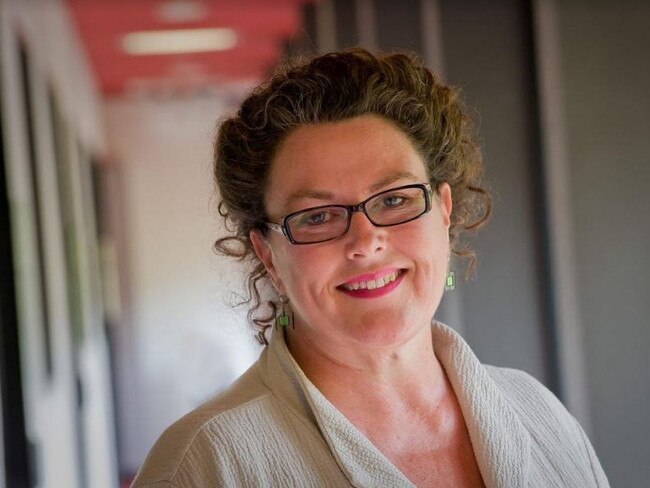
In 2020 epidemiologists became the rock stars of the science world, as they gave us insight into the dangers and risks of the Covid-19 virus sweeping the world.
Their expertise and their analysis, plus their ability to “dumb down” the scientific language for us into easily understood language has kept all of us informed when political double speak might have made that otherwise impossible.
Bennett, and the University of Melbourne’s Tony Blakely, stand out as the two most prominent go-to experts.
Rather than just numbers and data, epidemiologists have an understanding of the broader social and cultural issues within pandemics and while we were still in lockdown six and headed for our world record of days in lockdown, Bennett was advocating allowing people to enjoy the outdoors for the positive impact on mental health.
“We’ve got a lot of older people, in particular, who live in units who might not have outside areas,” Prof Bennett said.
“What’s giving them an extra hour of exercise going to do when what they’d love to do is go and sit in the park?”
And just last month Bennett cast doubt on banning unvaccinated people from public settings when they had free range to mingle at private gatherings.
“The one place that every case is eventually linked to is the home, yet we don’t have restrictions on unvaccinated people being linked socially with household visits,” she said.
“The irony is, they’re not only in the system, but you’re encouraging them to link in with the vaccinated economy in private houses, which is the most dangerous setting. So there is a strong argument that it’s safer to meet at a cafe rather than the home.”
13. Michael Gudinski
Australian music legend
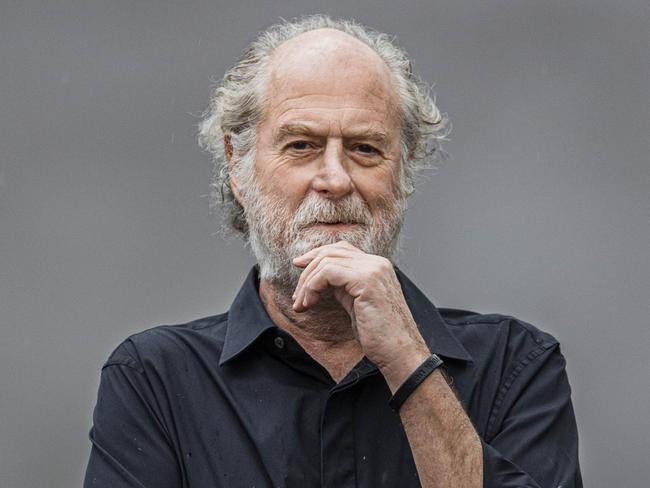
The great man of Australian music died in March at the age of 68, with an outpouring of love and affection from music figures around the globe.
But even in the months before his death, the famed Australian record executive and promoter was doing all he could to see the local music industry survive through the Covid pandemic.
He conceptualised and developed Music From The Home Front, The Sound and The State Of Music, platforms designed to showcase and support contemporary Australian music in an incredibly difficult time, his business Mushroom Records said after his shock death at his home.
The pandemic and shutdown of the country did not cause Gudinski to put up the shutters and ride out the storm.
Instead, Premier Daniel Andrews revealed after the music legend’s death, that close friends had shared many late night calls about how to get live music in Victoria back after the pandemic shut down concerts.
In tribute to Gudinski, the industry rallied to stage a second Music from the Homefront concert after the initial success in 2020.
At the Sidney Myer Music Bowl in Melbourne, a Covid-safe crowd watched live music from Amy Shark, Vance Joy, The Rubens, Tash Sultana, Budjerah, Lime Cordiale, Mia Wray and the unlikely coupling of hip hop trio Bliss N Eso with country star Kasey Chambers.
And the televised event featured prerecorded performances from Crowded House, Jimmy Barnes, Delta Goodrem and The Kid LAROI filmed all around the globe.
All to remind us Australian music was well and truly alive.
14. Craig Tiley
Tennis Australia chief executive
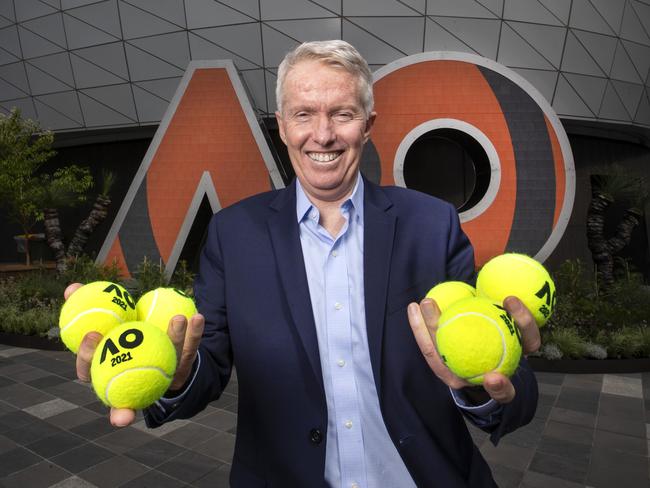
Mission: Bring in a couple of hundred tennis players from all around the globe amid a global pandemic, plus hundreds more of their support crew, and stage a major global sporting event while keeping everyone safe and pandering to the needs of elite sportspeople. All the while shouldering the hopes and expectations of an entire state to uphold Melbourne as one of the great sporting capitals of the world. Mission accomplished.
The chief executive of Tennis Australia pulled off the seemingly impossible when he saved the Australian Open from Covid cancellation, as has happened to many other major sporting events, including Melbourne’s own Formula One Grand Prix.
It was pulled off despite having to quarantine all players and support teams, organising training equipment for players to stay active in their rooms, pushing back the tournament dates into February, complaints from tennis stars about their “tough” conditions, paring back lead-up tournaments, and facing a barrage of complaints from the public about “special treatment” for foreign stars when Victorians were unable to even travel interstate.
He had to chop and change schedules on a whim from the moment he started to plan for what he hoped was still going to be a January tournament. The calls started in March 2020 and his phone rarely left his palm.
“Having flexibility to constantly move things because it’s health, and then going day by day, that’s been the most difficult because we started planning for this in March/April and it changed and changed and changed,’’ Tiley said, ahead of the first serve of the tournament..
“When we locked in a position it was really late in the piece. The biggest thing is the adjustment to change and then the fact that every day is a new experience and a new day.
“That’s the reality so when you plan it can be very short term, so you’ve got to have the next plan, and the next plan.”
15. Professor Jodie McVernon
Doherty Institute director of epidemiology
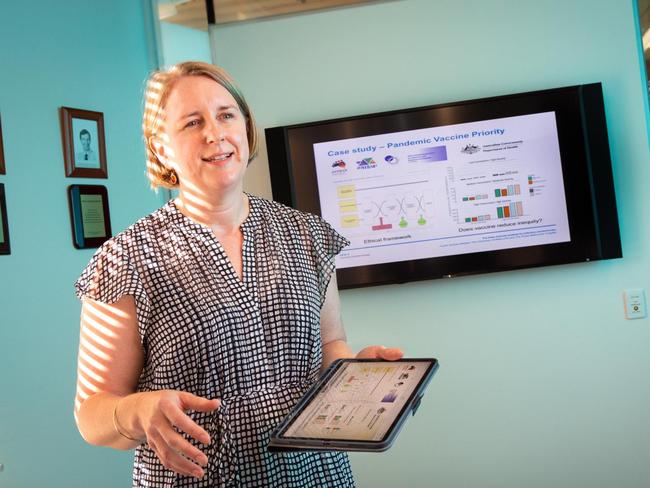
After months of lockdowns in Australia’s biggest cities, the nation’s leaders were desperate for a pathway to freedom.
They couldn’t have found one without Professor Jodie McVernon and her Melbourne-based Doherty Institute team, who crunched the numbers to give them the confidence that Australia could safely reopen once 80 per cent of those over 16 were fully vaccinated.
The Doherty Institute has been front and centre of modelling during the Covid pandemic, upon which governments have relied heavily in determining the best course of action in tackling the health crisis and finding a path out. Professor McVernon’s work has been key to this analysis.
In August her advice to national cabinet changed the course of strategies to develop a road map out of the crisis, highlighting that while the vaccine rollout had rightly focused on older Australians, it was vital to reorientate the program to younger Australians who were more likely to transmit the virus.
“It’s really 20 to 29s ... who are the peak spreaders,” Prof McVernon said in August.
She advocated the end of stringent lockdowns once vaccination levels of 70 per cent were reached, in conjunction with maintaining social distancing, capacity limits at venues and effective contact tracing.
“It could help to turn what might otherwise be a bushfire into more of a controlled back burn and keep case numbers low,” she said.
“Vaccination alone is a very big part of the answer, but it is not the whole answer ... we must maintain ongoing public health and social measures.”
16. Lucy Stephan, Rosemary Popa, Jessica Morrison
Gold medal rowers (on behalf of all Olympians)
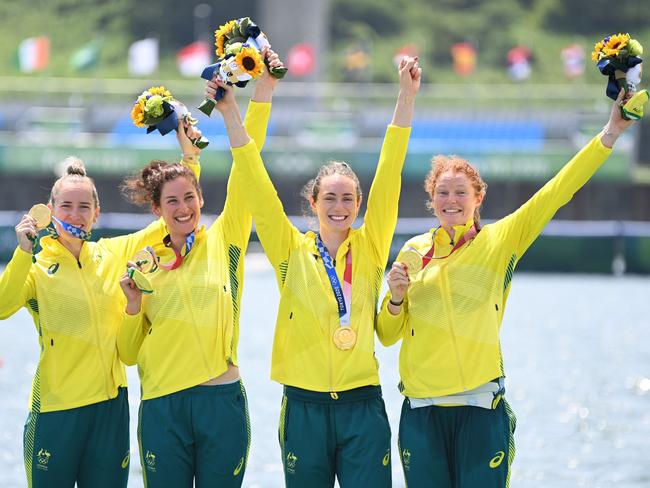
In the weeks leading up to the Tokyo Olympics, the passion and excitement for the games was, let’s face it, underwhelming. But with a captured audience thanks to more Covid lockdowns, it was, quite simply, the only show in town and the success of Australian athletes and the regularity of our national anthem being played suddenly created a national fervour.
While much of the attention was at the pool where Australians dominated, a trio of Victorians — Lucy Stephan, Rosemary Popa, Jessica Morrison — struck gold as part of the women’s coxless four, along with Annabelle McIntyre.
The women’s four event had been retired from the Olympic program for almost 30 years. But with the International Olympic Committee moving towards gender equity, the women’s coxless four class returned for these games.
A beaming Lucy Stephan took it upon herself to present her crewmates with Australia’s first rowing gold medals of the Tokyo Olympics.
“I think I just claimed that myself. I wanted to hug all the girls,” she said of her impromptu podium presentation.
The medal for Popa continued her family’s Olympic tradition. Her parents, Sue Chapman-Popa and Ion Popa, were medallists for Australia at Los Angeles in 1984.
“To have waited so long for this ... the equality between men and women of the seats available is so cool and I think it is just a testament to Rowing Australia to have five good women’s boats on the water at the moment,” Popa said.
There was double delight when later the Australian men’s coxless four made it two for two as Australia won back-to-back gold medals as Sea Forest Waterway.
17. Giles Thompson
Racing Victoria chief executive
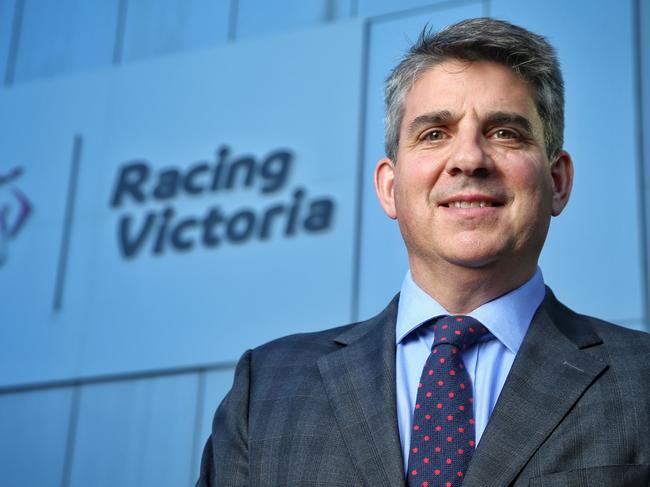
Horse racing has been a constant throughout the pandemic, and despite hardships in doing so, Giles Thompson’s mantra may well have been — the show must go on.
The highlight of the year was as flag bearer for bringing crowds back to major events, with the first sporting crowds since the last lockdown back on track for Derby Day.
But Thompson has had to crack a whip to keep the industry ticking over and competing.
When a group of Victoria’s top horse trainers were caught up in an alleged breach of Covid rules, Racing Victoria’s integrity team were called in to investigate a potentially illegal long lunch near Ballarat.
And some of Victoria’s best jockeys — including Jamie Kah, Mark Zahra and Ben Melham — were hit with spring carnival-ending bans following the Mornington Peninsula house party. After that, a livid Thompson said: “We do not have a God-given right to race”.
Melbourne Cup winning owner Nick Williams was a prominent advocate of Thompson’s tough stance.
“(Victorian racing Minister) Martin Pakula and (Racing Victoria CEO) Giles Thompson have done such a marvellous job to keep the sport going,” he said after the jockeys’ indiscretion.
“That allowed these small business people, the jockeys, to ply their trade and earn a living.
“I think it was just totally disrespectful not only to the industry but to the entire state of Victoria and Australia to behave the way they did.”
18. Associate professor Kate Stern
Head of reproductive services at Royal Women’s Hospital and head of clinical research at Melbourne IVF
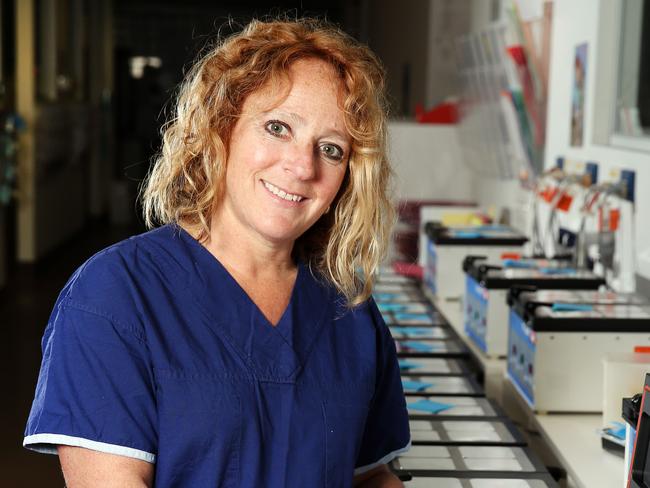
One of the state’s leading IVF specialists, Kate Stern treats patients undergoing treatment for cancer and serious medical issues, many of whom are older.
She is a world leader in fertility preservation, and established the state’s largest fertility preservation service that aims to allow both men and women the chance to have children after cancer treatment. Her team has successfully used frozen ovarian grafts in women after cancer treatments to allow them to have children.
And in the lab, researchers are working on growing an “artificial ovary” for similarly affected women.
Stern has also been a strong voice in counselling the safety of the Covid-19 vaccines for pregnant women.
19. Greg Hunt
Federal Health Minister
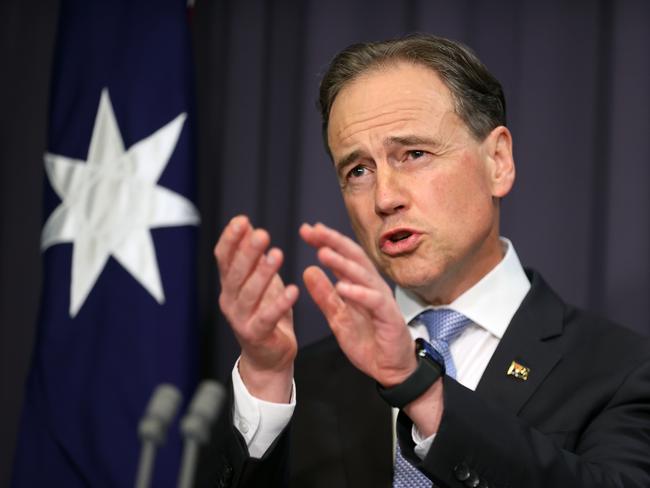
The trio of the Prime Minister, the Treasurer and Health Minister Greg Hunt has been the almost-exclusive face of the federal government for nearly two years now. Hunt, the Member for Flinders, has had to shift his focus many times during the pandemic, first on how to respond to the first Covid cases, dealing with containment strategies with various states, pulling together the best minds for forward policy and then, this year, overseeing the rollout of the country’s vaccination program which, in Victoria at least, sees us on the verge of almost total freedom.
And he’s been chief in the decision-making on the reopening of international borders based on health risks.
Amid it, he’s been hammered by states over vaccine supply and allocation to states, plus when vaccines were ordered and how many.
The job doesn’t stop though, with booster shot programs and vaccinations for children still high on the agenda and political hot cakes.
20. Gillon McLachlan
AFL chief executive
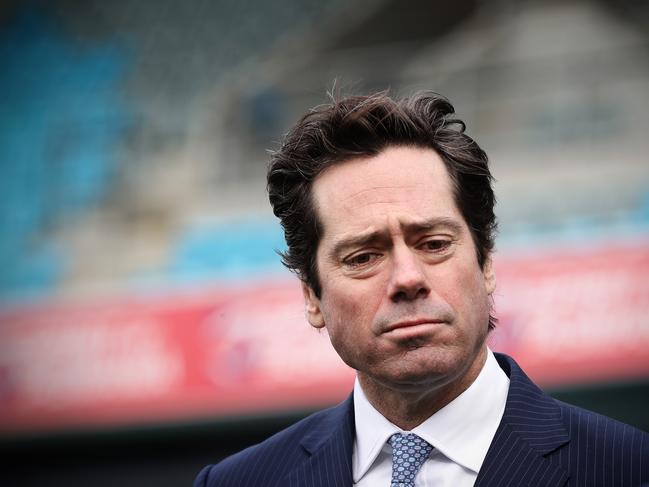
With the 2020 AFL season spent almost entirely with clubs based away from home due to border controls and Covid risks, there was some hope 2021 would be easier.
But the Delta strain put an end to that with the AFL continuing to scramble to relocate teams and change venues and match times at a moment’s notice.
He said at the end of the home and away season that it had been 162 days of daily AFL crisis meetings, of war gaming solutions to dire scenarios — both real and unrealised — of lifting teams suddenly and dropping them in a safer location.
Of all AFL and AFLW rounds, only four were untouched by Covid. There have been more than 100 fixture changes.
The grand final, for a second year in a row, was played interstate. But at least it happened.
21. Josh Giddey
Emerging NBA star
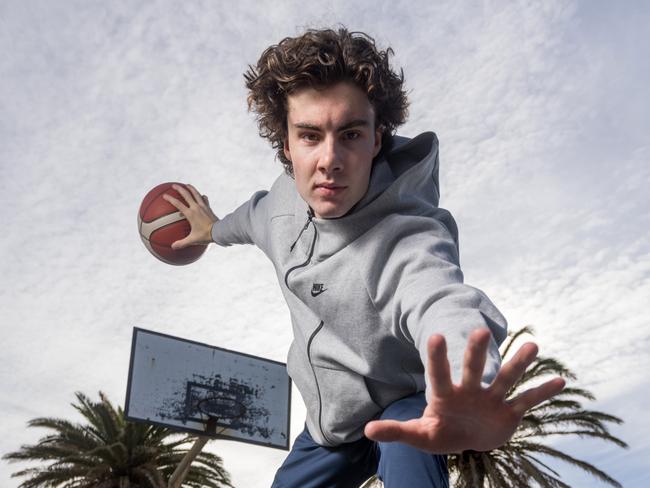
Ahead of the Tokyo Games, where Australia’s men’s basketball team the Boomers won its first Olympic medal, there was some chatter about whether the squad should have included a young 18-year-old few outside the sport had ever heard of.
When Josh Giddey was drafted with pick six in the NBA draft to the Oklahoma Thunder, more people paid attention to the young man’s talents.
And his returns since the season started have many proclaiming him the new poster boy of Australian basketball.
Giddey’s father, Warrick, was a stalwart of the Melbourne Tigers in the NBL, while his mother, Kim, also played for the Tigers in the WNBL. And he cites Andrew Gaze as one of his greatest influences. The young Giddey didn’t go the American College route of many before him, instead suiting up for the Adelaide 36ers for the 2020-21 season before going straight into the draft.
Having only turned 19 in October, Giddey is one of the youngest players in the NBA this season and is receiving rave reviews from US media and basketball experts.
Last month Giddey became the third-youngest player in the NBA’s 75-year history to record 10 assists in a game behind only LeBron James, who did it twice.
Earlier this week he was just a whisker away from making NBA history as the youngest player to notch a triple-double as the Aussie yet again played a pivotal role in the Oklahoma City Thunder’s 108-100 victory over the New Orleans Pelicans. The teen led the team with 12 rebounds and nine assists, as well as posting seven points throughout his 31 minutes on the court.
Other contenders:
Matthew Guy
Paul Guerra
Dani Laidley
Prof Brendan Crabb (Burnett Institute)
Gabrielle Williams MP
Jeroen Weimar
Sally Capp
Peter Doherty



